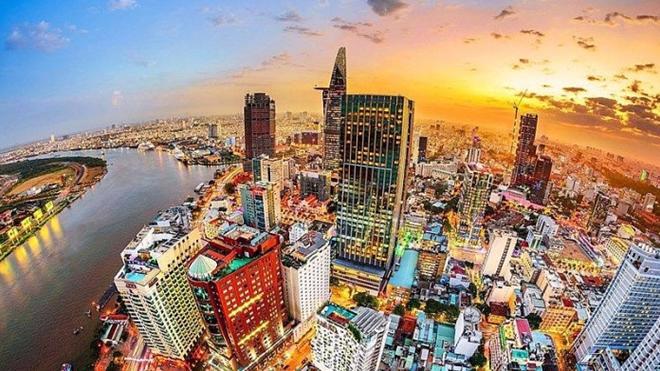Ms. Dang Phuong Hang, Managing Director of CBRE Vietnam

The presence of foreign homebuyers is one of the main factors contributing to the vibrancy of Vietnam’s residential market. Therefore, openly creating favorable conditions and offering clear guidance for foreigners to buy and own a house in Vietnam will help attract and encourage wealthy foreigners to spend and invest in Vietnam, which in turns boosts the development of the real estate market as well as Vietnam’s economy.
The legal system regulating how foreigners buy and own property in Vietnam lacks consistency and poses certain challenges and difficulties during execution. According to the Law on Housing 2014 and Law on Real Estate Business 2014, foreigners are entitled to buy and own houses in Vietnam, including apartments and separate houses associated with land use rights. Meanwhile, according to the Land Law 2013, foreigners are not eligible to own land use rights in Vietnam. Therefore, the proposed amendments in the Revised Law on Housing are considered essential to ensure a consistent and rigid regulatory framework for foreigners looking to buy property in Vietnam.
The proposed amendments may still require additional guidelines for execution, including how to identify the land use right of a Vietnamese buying property from a foreigner who has no land use rights. This will require more specific mechanisms along with detailed documents instructing the implementation of the revised laws to ensure transparency, clarity, and seamless execution.
On the back of sustainable economic development and a growing residential market, Vietnam has been attracting various foreign investors and homebuyers. There will still be opportunities in Vietnam for foreign investors.
There has been major improvements in infrastructure in Vietnam across the regions, supporting the development of various real estate sectors. Thus, there will be opportunities in multiple locations.
The legal framework being completed and unified will support the confidence of foreign buyers to find opportunities in Vietnam.
With a stronger presence of foreign developers around Vietnam, it is expected that the market will welcome more high-quality housing projects targeting foreign buyers. Thus, when looking for property to buy in Vietnam, foreigners will be offered more choice in terms of location and products.
Mr. Thi Nguyen, Vice Director at T&P Law Firm

The first legal obstacle for foreigners to purchase houses in Vietnam is the difficulty in ascertaining which residential projects are eligible for foreign ownership. Decree No. 99 regulates that provincial departments of construction must publicize a list of residential projects that are not allowed for foreign ownership due to national defense and security, as instructed by the Ministry of National Defense and the Ministry of Public Security. However, local authorities found it is difficult to issue such an exhaustive list of residential projects in areas relating to national defense and security. This issue was resolved in 2021 by the issuance of a later amended regulation to Decree No. 99 so that provincial departments of construction will now have to issue a “positive list” of residential projects that are allowed for foreign ownership rather than a “negative list”, as required under Decree No. 99.
The second issue on home ownership by foreigners in Vietnam is a mismatch between the Law on Housing 2014, the Law on Real Estate Business 2014, and the Land Law 2013 regarding the status of land use for foreigners in Vietnam. Specifically, the Law on Housing allows foreigners to purchase houses in Vietnam and the Law on Real Estate Business requires that the sale of houses must be combined with the sale of land use rights. However, the Land Law does not list foreigners as an object to use land in Vietnam. This issue leads to delays in the issuance of property title documents to foreign homebuyers in Vietnam, with only around 3,000 houses being able to be owned by foreigners, as reported by the Minister of Construction to the National Assembly (NA) recently.
The third legal shortcoming for foreigners relating to purchasing houses in Vietnam is that foreigners are only allowed to purchase houses from a project developer or from a previous foreign homebuyer but are not allowed to purchase houses from local individuals or organizations. However, foreigners are allowed to receive a house as inheritance or a gift from local individuals or organizations. This means that a house owned by a local individual cannot be directly sold to a foreigner, but the same house can be received by such foreigner as a gift. In practice, there have been cases where foreigners received houses from local individuals as a gift and then made an actual payment under alternative payment structures to avoid this restriction. Further, existing law is unclear on whether a foreigner can buy off-the-plan. This issue creates more difficulties for purchasers and also makes products less attractive to foreign buyers.
While preparing the draft Law on Housing (amended) that was scheduled to be submitted to the NA for consideration and discussion at its 5th session in May and approval at its 6th session, the Ministry of Construction proposed that foreigners be allowed to buy and own houses in Vietnam, but not be allowed to own houses associated with land use rights. In general, under the latest draft revised Law on Housing introduced in April 2023, ownership rights of foreign homebuyers are still protected by their rights to obtain property title documents. However, the current draft revised Land Law still does not recognize foreigners as a land users. This discrepancy will lead to difficulties for foreigners to purchase houses in Vietnam unless there is a solution to resolve this critical issue under the final laws when promulgated.
The latest draft revised Law on Housing proposes clearer regulations on ownership by foreigners. In particularly, it is expected to resolve several pending issues on foreign home ownership and also widen the scope of houses eligible for foreign purchasers (not only in residential projects but also in urban housing projects). With this approach and if the pending legal obstacles on the issuance of property title documents for foreign homebuyers are resolved in the final relevant laws, I believe that foreigners will have a more transparent and comprehensive legal framework in purchasing and owning houses in Vietnam in the near future.
Mr. Matthew Powell, Director, Savills Hanoi

In general, foreign buyers must have a valid passport with the appropriate entry stamps and cannot be subject to diplomatic privileges or immunities. They must hold full civil capacity to enter transactions as prescribed in Vietnamese law. However, there are some discrepancies between several of the Articles in the 2014 Law on Housing and Decree No. 99/2015/ND-CP, which make the administrative process more complex.
Supply can also be a challenge. Like any prudent buyer, foreigners want high-quality projects that present good possibilities for future returns. However, the proportion of units foreigners can own is limited. According to Circular No. 19/2016/TT-BXD issued by the Ministry of Construction (MoC) and Decree No. 99/2015/ND-CP, foreigners cannot own more than 30 per cent of units in a single apartment complex or 250 houses in an administrative ward. Foreign individuals and entities can own properties but are limited to a 50-year tenure.
Access to information can also be a challenge. Given that the regulations are published in Vietnamese, foreigners must utilize a reliable and reputable consultant like Savills that have a profound understanding of the market. A clear and true understanding of relevant laws and procedures is essential to avoid costly errors.
Foreigners can own houses in Vietnam and can get a house ownership certificate (pink book) by investing in or buying, renting, receiving, or inheriting houses, apartments, and detached housing in commercial housing projects rather than stand-alone properties, except in areas related to national defense and security, as prescribed in the 2014 Law on Housing.
The recent proposal from the MoC means that foreigners are eligible to own properties within commercial housing projects.
The amendment to the 2014 Law on Housing is an attempt to ensure a proper socio-economic balance and to protect the property rights and access of local people. However, this will not influence the market much because most foreign buyers want properties within commercial housing projects rather than stand-alone properties because there is an assurance of quality and security.
It is, however, favorable for commercial housing projects, as this could increase the proportion of foreign ownership within a project, which could drive increased demand and revenue. The current limitations mean foreigners have a limited product pool and this makes Vietnam less competitive than regional peers. Thailand, Malaysia and Indonesia have interesting policies encouraging foreign ownership.
By creating a more comprehensive and supportive legal framework, Vietnam could become a more competitive regional player.
Looking ahead, Vietnam is an attractive ASEAN player with sustained and robust economic growth, attractive policies and FTAs, and high quality of life for foreigners. This means foreigners will remain keen on real estate here.
Foreign buyers prioritize quality, location, management, and the long-term outlook of a property. We tend to see these products at the high end, but large developments in outlying districts or surrounding provinces in Hanoi and Ho Chi Minh City are increasingly offering these products at more competitive prices. Despite the challenges, there is significant potential for foreigners looking to invest in housing in Vietnam.









 Google translate
Google translate